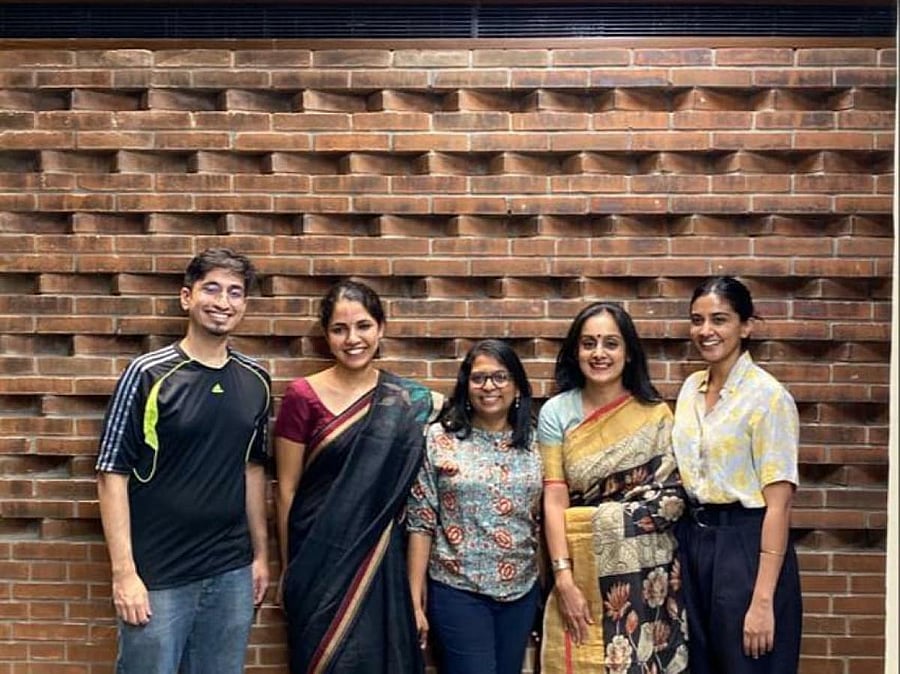
Over the past few years, the concept of podcasts has becoming increasingly popular. They are a favoured medium among millennials and young adults in Bengaluru, which has quickly become one of the top three consumers of audio content in the country. “Audiences are starved for audio content,” says Ishwar Shankar of the Bangalore Recording Company, explaining this unprecedented growth.
From sports and pop-culture to public policy and even true crime, listeners are consuming content at a surprising rate. However, there is very little content that caters to an Indian audience; even less for the south Indian listeners. This sparseness has led Bengalureans to produce content of their own, tailormade to their tastes.
Bangalore Recording Company, for example, has been producing a daily newscast since 2018. Run as an aggregator model, the newscast allows its listeners to access their news roundup on WhatsApp, instead of having to rely on an OTT streaming service. “We found that the response we get is more personal this way. We have higher engagement through WhatsApp than any other platform,” co-founder Gowri Omanakuttan says.
This mode of delivery has ensured a two-way flow of communication. Listeners often send them reports of incidents from across the city. “We found out about the traffic mannequins that were put up when our listeners sent us pictures from across the city. This way, we were able to report this before major media outlets did,” Ishwar explains.
The newcast, produced in both English and Kannada, has aired a total of 620 episodes so far.
They hope to replicate this model in other southern cities before they take it to the other parts of the country. “There is very little south-directed content. We want to focus on content that is produced in and for southern India,” Gowri says.
‘City of Women’, on the other hand, is a series that centres around the lives of women in the city. The show is a creation of Vaaka Media, a podcast production company helmed by Radhika Vishwanathan and Samyuktha Varma. The company’s body of work includes programs on social development and public policy. “Having grown up in the city, we wanted to make a show that felt local,” Samyuktha says.
The show draws from their personal experiences in the city as well as the stories they have heard. “The show brings listeners stories of different women from the city. They are about wide range of topics from economic freedom, to travel and adventures.”
The concept, Samyuktha adds, stemmed from a need for changing the narrative. “We wanted to focus on joyful experiences, as opposed to the mournful tone that women are often portrayed in.”
Many podcasts cater to a very niche audience. ‘Injury Time’, for example, is for the football fans. It started in 2015 by part-time podcaster Sandeep Menon as a weekly three-episode show; it now airs bi-weekly.
“Topics concerning I-League and ISL form the major chunk of the show. I do an in-depth analysis of matches, interviews with the players and coaching staff, as well as a separate question-and-answer episode, called ‘Footnote,’ to answer the questions sent by fans on my Twitter account,” says Sandeep.
With 136 episodes, ‘Injury Time’ can be found on Audioboom and Spotify. “As the main subject is narrowed down to Indian Football, it forms a small part in the Venn diagram of audience outreach. Social media and word-of-mouth is the only way I promote my show,” he adds. There are options for those who crave for connect in Kannada. “While there are a lot of in-depth conversations taking place in English, we realised that similar quality content in Kannada is not available for consumption,” says Pavan Srinath, one of the hosts of Thale Harate.
The show, hosted by Pavan, Surya Prakash BS, and Ganesh Chakravarthi, has released 60 episodes since its inception in December 2018.
Currently, there are only two to three Kannada podcasts that produce content consistently. “We are still in the very early days of Kannada podcasting,” says Surya.
There has been a latent demand for good content in Kannada, they say; a majority of their listeners are metropolitan, English-speaking professionals. “We realised that people prefer to consume content in their language, if available.”
Thale Harate does not stick to a singular theme. “There is so much content that can be mined in Bengaluru,” says Ganesh. “There is no dearth of experts or topics of discussion in this city,” he adds. Time travel, the future of humanity, as well as history and popular culture, are among various topics that the show deals with.
“No one thinks of having such conversations in Kannada. We use ‘Kan-glish’ (a mix of Kannada and English) since we are not looking to reinvent the language, but simply introduce certain concepts.”
Engagement, the team tells Metrolife, has been much more vibrant as compared to English productions.
“People have written to us to say that they have WhatsApp groups where they discuss the week’s episode.”
